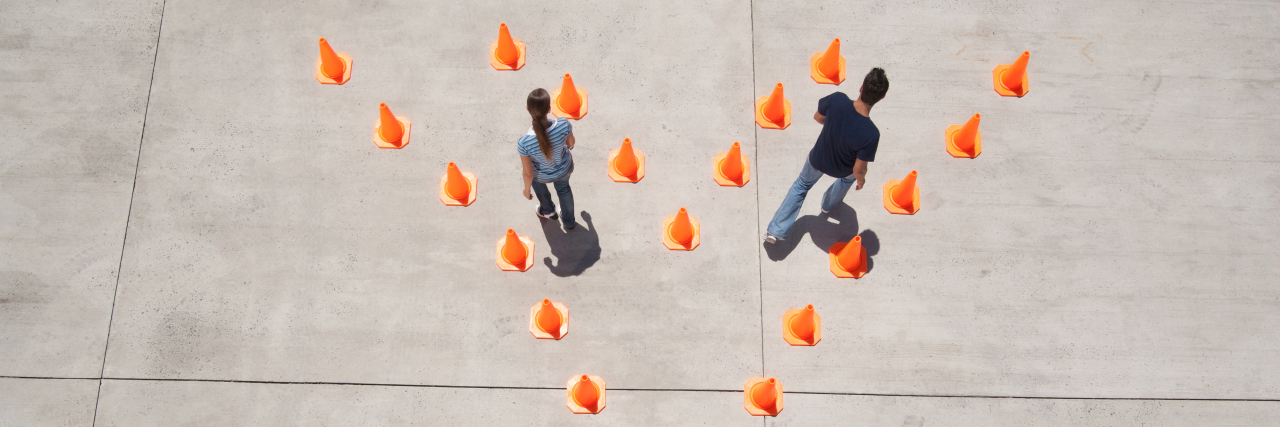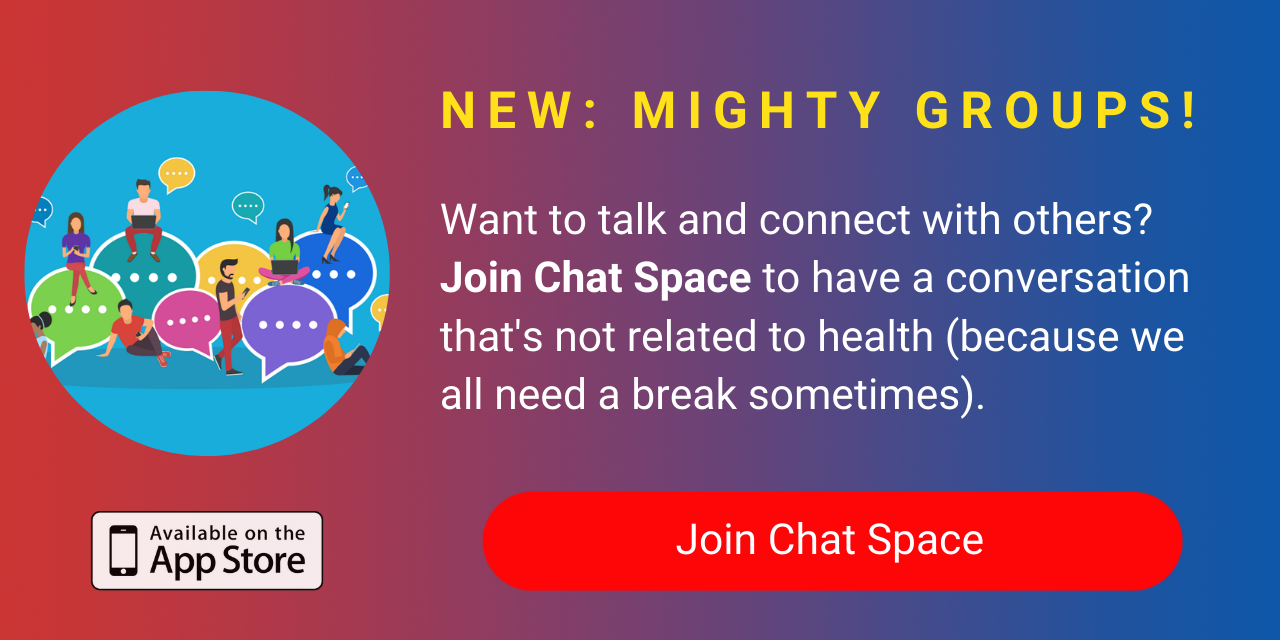I recently wrote an article titled “When People Think They’re Entitled to Ask Rude Questions About My Disability,” inspired by the rude and insensitive mentalities my closest friends had about my disabilities, and disabilities in general. I have no regrets about that article, and everything I said in it is true. My friends made fun of me for my movement disorders, and for the longest time, I let it happen. But after that article got published, and I started seeing the encouraging comments on it, I decided enough was enough.
Before my friends had seen it, I got serious with them. I told them I didn’t like the jokes and comments about my disability, and that I wanted them to stop. They responded well and agreed to stop with the jokes. I thought the issue was resolved, until one of my friends saw my article.
She asked me why I was still friends with all of them if I felt the way I had expressed in the article. Honestly, I wasn’t sure how to respond. I certainly wasn’t going to go back on what I said, but in my mind, this issue had been figured out, and I had moved on. But this one friend didn’t want to let it go. She asked me what I felt, and I told her. And the response was not one I expected from a friend:
“We’re not responsible for all of your problems. We’ve done so much for you. You’re being so selfish.”
All I could do was laugh, and it was genuine laughter. My friend prefaced this whole conversation by saying that she cared about me and wanted to know how I honestly felt. But when I did, I got these responses, among others. I didn’t feel a lot of care coming from her based on what she was saying to me. The rest of my friend group didn’t contribute because they knew this was going to blow up into something. They had already apologized to me and made their peace with the situation, just as I had.
I was open and honest about my feelings, something I’m not used to doing and don’t particularly enjoy. But in this situation I knew it was necessary. But more than just for the sake of transparency; this was a test. My vulnerability was a test for my friends, and this one friend in particular, to see how they would respond to my concerns about something so deeply personal such as a movement disorder. And they failed my test.
Many of the comments of my previous article included something along the lines of “you need new friends.” After I wrote it, I began to consider if I actually wanted to remain friends with these people. I’ve been friends with them for three years, ever since our first few days of freshman year in college. I wanted to stay friends with them. But after that conversation, it wasn’t possible anymore. I left that group chat, unfriended them from social media, and now I’m moving on. The last thing I said to all of them before I left:
“Don’t insult me by texting me an apology later, or asking to talk about this.”
That was the last thing I said to them before I left the group chat we’d had for years. That comment was more directed at that one friend who was being particularly antagonistic. One person in that whole group did text me, but I didn’t mind because he and I are the closest friends out of everyone else. He told me he didn’t share any of the same feelings my other friend was expressing, but that he genuinely was sorry. We agreed to stay in touch, but the rest of them, I’m leaving behind as another part of my experiences in college. But there’s something else that complicated this whole situation.
I’ve also written articles about a romantic relationship I had to leave because it became toxic and unhealthy for me mentally. In those, I talked about the feelings of loneliness I felt for a little while after. But having those friends, and others, made me feel better. That also happened before the current coronavirus (COVD-19) pandemic began, so I could still socialize to fill my time. But in this time of social distancing, I find myself alone in my apartment all day, now without anyone to talk to regularly.
Sure, I can talk to my family, and that is helpful, but just about everybody knows that talking to family is different than talking to friends. I don’t have many really close friends, and the ones I do have are halfway across the country in my hometown. So, why does this make it more complicated? Because I’ve just lost some of my closest friends in the middle of a pandemic, which makes it very difficult to make new friends.
I know I have other friends and loved ones, but there is something different with close friends, and something else with best friends. I don’t really have a lot of super close friends, and even fewer people I would call best friends. But here is what I do know.
I know the people I can, and will, turn to for help and friendship in the future will not treat me the way my ex-friends did. I will no longer put myself in a position to be made fun of because of the way I blink, the way I move my eyes, or the way I walk. My friends going forward will never be given the opportunity, because they won’t be my friends if they try. I am frustrated and fed up with people mocking what is painful and embarrassing for me. I refuse to be the butt of any more jokes when it comes to my disabilities. And if that means I need to cut people out of my life, so be it.
I don’t know if you have a disability, or not. But what I will tell you is this: you deserve better than people who won’t respect your dignity and self-worth. You deserve better than people who won’t take you seriously when you tell them something personal. If you do have a disability, you deserve better than people who make fun of you or who point it out all the time.
The coronavirus (COVID-19) has made it more difficult to socialize and make new friends. But even with that, you cannot compromise your well-being. You cannot sacrifice your dignity for unhealthy friendships. If it comes down to it, and you need to decide between taking care of yourself and people close to you, you owe it to yourself to look after you. Friendships come and go, but the longest relationship you will ever have in life is the relationship you have with yourself. Prioritize your relationship with you. You can say goodbye to toxic friendships, but you cannot say goodbye to yourself. I know it won’t be easy, but you are valuable, beautiful, and worthy of the life you’ve dreamt of. Toxic friends don’t belong in your life.
Getty image by Martin Barraud.


